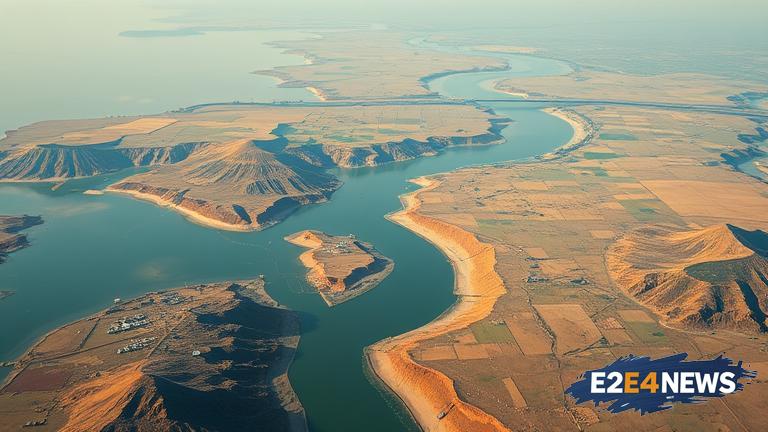The Indus River Delta, once a thriving and fertile region, is facing an unprecedented crisis. The delta, which is the sixth largest in the world, is shrinking at an alarming rate due to a combination of factors, including climate change, water scarcity, and human activities. The Indus River, which is the lifeblood of Pakistan, is experiencing a significant decline in its water flow, resulting in the delta’s erosion. The consequences of this decline are far-reaching, affecting not only the environment but also the livelihoods of millions of people who depend on the delta for their survival. The delta is home to a diverse range of flora and fauna, including mangrove forests, which are being destroyed at an alarming rate. The loss of these forests is not only an environmental disaster but also a threat to the local communities that depend on them for their livelihood. The fishing industry, which is a significant contributor to Pakistan’s economy, is also being severely impacted by the decline of the delta. The reduction in fish stocks is affecting the livelihoods of thousands of fishermen and their families. Furthermore, the delta’s decline is also having a significant impact on the country’s agriculture sector, with many farmers struggling to irrigate their crops due to the lack of water. The Pakistani government has been criticized for its lack of action in addressing the crisis, with many arguing that more needs to be done to protect the delta and its inhabitants. The situation is further complicated by the fact that the delta is a transboundary ecosystem, with India also playing a role in its management. The two countries have a long-standing dispute over the sharing of the Indus River’s water, which is exacerbating the crisis. Despite the challenges, there are still opportunities for the delta to be saved. Conservation efforts, such as the restoration of mangrove forests and the implementation of sustainable fishing practices, can help to mitigate the effects of the decline. Additionally, the development of more efficient irrigation systems and the promotion of water-saving technologies can help to reduce the pressure on the delta’s water resources. However, these efforts require a coordinated approach from all stakeholders, including the government, local communities, and international organizations. The international community has a critical role to play in supporting Pakistan’s efforts to protect the delta, through the provision of financial and technical assistance. The United Nations, in particular, has a key role to play in promoting cooperation between Pakistan and India over the management of the Indus River. The situation in the Indus River Delta is a stark reminder of the need for urgent action to address the global environmental crisis. The consequences of inaction will be catastrophic, not only for Pakistan but also for the entire region. The delta’s decline is a wake-up call for the international community to take action to protect the world’s most vulnerable ecosystems. The fate of the Indus River Delta is a test of our collective commitment to protecting the environment and promoting sustainable development. The clock is ticking, and it is imperative that we take action now to save the delta and its inhabitants from the brink of disaster. The people of Pakistan are looking to the international community for support and assistance in this time of need. It is our collective responsibility to ensure that the Indus River Delta is protected for future generations. The delta’s decline is a complex issue, requiring a multifaceted approach that addresses the social, economic, and environmental dimensions of the crisis. The solution lies in a combination of short-term and long-term measures, including the implementation of emergency conservation efforts and the development of sustainable management practices. The international community must come together to support Pakistan’s efforts to protect the delta, through the provision of financial, technical, and capacity-building assistance. The fate of the Indus River Delta is a global concern, requiring a global response. We must act now to save the delta and its inhabitants from the devastating consequences of inaction.





